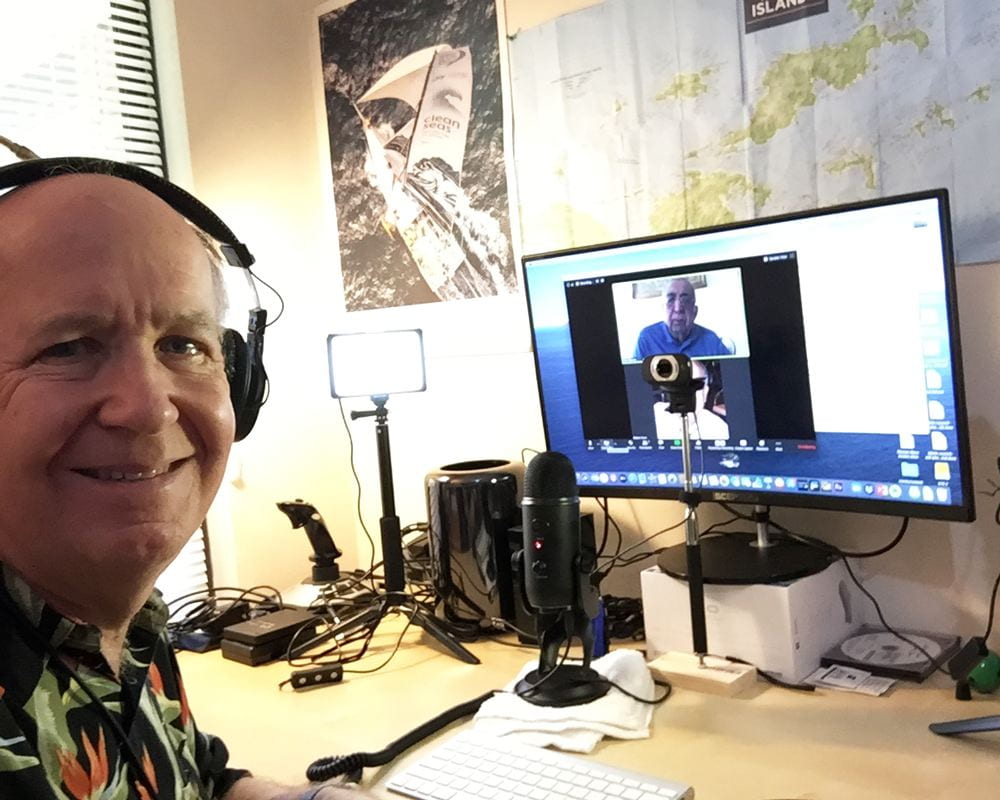Launched in early October, the second season of Robert Hunt’s Interfaith Encounters Podcast is well underway. This season’s focus is religious freedom, with interviews tackling topics such as restrictions on church ministries, exclusion of LGBTQ persons, attacks against synagogues and mosques, and the individual right to pray in school.
“The interviewees have diverse approaches, but the common theme is, ‘What is religious freedom and how is it put into practice?’” said Hunt, who is Director of Global Theological Education at Perkins. “It’s a complicated question.”
Upcoming programs in November and December include:
- November 3: Eboo Patel, Founder and President of the Interfaith Youth Corp
- November 10: Sharon Grant, Faculty of The Religious Freedom Center of the Freedom Forum Institute, Assistant Professor of the History of Christianity at Hood Theological Seminary
- November 17: Rick Halperin – Director of the Southern Methodist University Human Rights Program
- November 24: Qudsia Mirza, lawyer, author, Professor of Law at Birkbeck University of London
- December 1: Steve Long, University Professor of Ethics at the McGuire Center for Ethics at Southern Methodist University
- December 8: Joel Schweitzer, AJC Regional Director
- December 15: Marci Hamilton, constitutional lawyer and author of God vs. the Gavel.
Interviews released in October included Brian Grim – CEO of the Religious Freedom and Business Foundation; Kelly Shackelford – CEO and Lead Counsel for First Liberty Institute; the Rev. Rachel Baughman, pastor of Oaklawn United Methodist Church, and Rachel Bresner of the Anti-Defamation League and Jean and Jerry Moore Southwest Civil Rights Counsel.
Issues in the news, such as the Masterpiece Cake case and the debate over whether medical procedures such as birth control and abortion should be covered by health insurance, have spurred interest in religious freedom, Hunt said.
“The focus in the U.S. on religious freedom typically relates to the First Amendment and the federal government,” said Hunt. “But for many people, there’s a feeling that the main attack on their religious freedom comes from other religions in the U.S. It’s the idea that says, ‘For me to be religious in my way, you cannot be religious in your way.’ Or, ‘For me to be religious in my way, it is necessary for me to attack the dignity of your religion.’”
He added that many cases of suppression of religious freedom occur not at the state or federal level, but more likely at the local government level or through the actions and behaviors of city officials.
Listeners can find the podcasts at https://interfaith-encounters.simplecast.com and on other podcast platforms including Apple, Google and Spotify. Each podcast runs about 20 minutes.
Hunt launched the podcast earlier this year, with the focus of the first season’s interviews centered on COVID-19 and faith communities. He spoke with local leaders of the Islamic, Sikh, Jewish, Christian, Hindu and Buddhist traditions about how their communities are coping and how the teachings of their traditions inform their response.
“It’s only when we understand what we are each going through that we can be mutually supportive and find ways to work together for society,” Hunt said.
